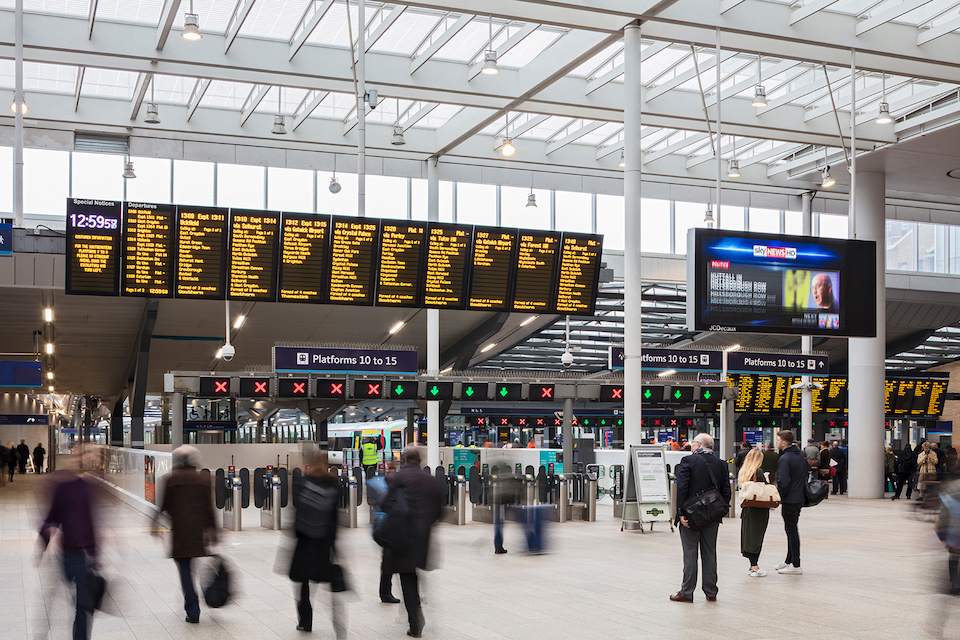UK punctuality a problem for regulators
Victorian-style clock at Brighton railway station flickr.com/photos/wwwuppertal/3543891990 Punctuality and reliability continue to be the leading cause of passenger complaints on the British railway network, accounting for 18.6 per cent of all rail passenger complaints between October and December 2022. This comes as official figures on passenger rail service complaints were released by the Office of Rail and Road (ORR) this week.
The numbers reveal that train companies closed 97,254 complaints in the latest quarter, an increase of 8 per cent from the same quarter in the previous year. The ORR requires train operators to respond to 95 per cent of complaints within 20 working days, but the latest figures reveal that only 92.9 per cent of complaints were closed within this timeframe. Grand Central and CrossCountry were found to be particularly poor performers, with both failing to respond to complaints fast enough.
Between July and September 2022, Grand Central only responded to 22.9 per cent of complaints within 20 working days, while CrossCountry only managed to respond to 13.9 per cent. Although both companies have made some progress in improving their response times, they still have a long way to go before they achieve full compliance. CrossCountry has also been the subject of many complaints about overcrowding.
The company has recently announced that it will further reduce capacity by withdraw its ageing fleet of high-speed trains (HSTs), the 1970s-designed diesel powered formations, originally built for prestige 125 miles per hour (200kph) express services.
Complaint are a barometer of performance
As a result of these findings, the ORR has intervened and put recovery plans in place for both Grand Central and CrossCountry. The latest statistics were published shortly after ORR's new Complaints Code of Practice[1] for all train companies came into force on 1 April 2023. This new code is designed to incentivise quality and timeliness in complaints handling, which are the key drivers of passenger satisfaction with the complaints handling process.
The code is also intended to embed a culture where insights from complaints are used to drive continuous improvement.
 Hurry for the one o'clock train. The Shard concourse at London Bridge
Hurry for the one o'clock train. The Shard concourse at London Bridge
Stephanie Tobyn, Director of Strategy, Policy and Reform at ORR, emphasised the importance of addressing passenger complaints[2] promptly and effectively. "Passenger complaints are a barometer of how train companies are performing," she said. "No passenger wants to have to complain, but when they do, the process needs to be simple, in a suitable format, and timely. Grand Central and CrossCountry have not been delivering the complaints service they should, and we're starting to see improvements following our intervention.
We will be watching closely as this progress needs to continue apace."
Urgent need to improve
CrossCountry operates a complicated network of services, calling at destinations as far north as Aberdeen, and into the deep south west at Penzance. The company serves the majority of urban centres outside London. The hub of their operations is Birmingham.
Grand Central is an 'open access' operator, providing services from Bradford and Sunderland in the north of England to London via several destinations on the East Coast Main Line.
The findings come just after another operator, TransPennine Express[3], was called out in the UK parliament for excessive use of a loophole, which allowed the Anglo-Scottish operator to cancel huge numbers of trains at short notice, without reporting them in official figures.
According to the ORR, the latest figures underscore the urgent need for train companies to improve their punctuality and reliability, as well as their responsiveness to passenger complaints.
References
- ^ Complaints Code of Practice (www.orr.gov.uk)
- ^ passenger complaints (dataportal.orr.gov.uk)
- ^ TransPennine Express (www.railtech.com)